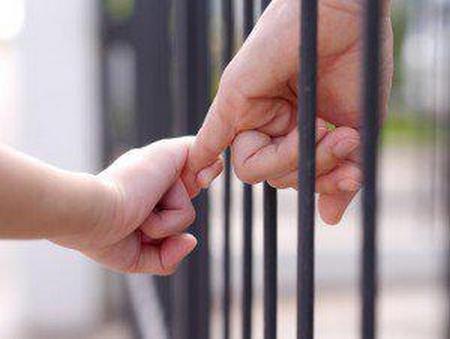Parental Rights for Incarcerated Parents
 Being arrested and charged for a crime can have a significant impact on a person’s life, especially when the conviction comes with a long-term prison sentence. It is not only the person, however, who finds themselves the most affected. With the prison population growing in the United States, and roughly 2.2 million prisoners in the U.S. (excluding those who are on probation or parole), the number of people affected by an extended prison sentence includes the prisoner and his or her family, especially when children are involved.
Being arrested and charged for a crime can have a significant impact on a person’s life, especially when the conviction comes with a long-term prison sentence. It is not only the person, however, who finds themselves the most affected. With the prison population growing in the United States, and roughly 2.2 million prisoners in the U.S. (excluding those who are on probation or parole), the number of people affected by an extended prison sentence includes the prisoner and his or her family, especially when children are involved.
Incarcerated Parents Can Still Maintain Their Parental Rights
When a parent has been arrested and convicted of a crime, depending on the circumstances, a parent may lose parental rights to his/her children. This, however, is not a guaranteed termination. Parents who have been incarcerated may still be permitted to have parental rights and a relationship with their children as long as that relationship does not harm or cause damage to the child’s physical, mental, and/or emotional well-being.
Child Custody at Time of Arrest
At the initiation of your arrest or once you get your first phone call from the arresting official, there may be an opportunity for you to make arrangements for your child/children to be looked after by a relative or family friends. Even if there is another relative or friend to take care of the child (who is not the other biological or adoptive parent), it will be up to the Child Protective Services to vet the emergency foster parent to ensure that this person is responsible and won’t cause harm to the child. If possible, it is always beneficial for the child to remain with a relative or a family friend rather than be put into foster care as the child’s life will be less likely to be disrupted by the imprisonment if he/she is with someone he/she knows and trusts. It’s also best for the child if the arrangements allow the child to remain local so that his/her life is unchanged as much as possible.
The Importance of Maintaining Relationship between the Parent and Children
To later be able to reunite with his/her children, an incarcerated parent, who has not had his/her parental rights terminated, should work to ensure that he/she has visitation rights. It is important for keeping the family intact that there is consistent family contact while the parent is in prison. Studies report that continued and regular visits lead to strong, successful relationships between the parent and child post-incarceration and also lead to a lower recidivism rate for the parent.
Reunification Process
Reunification is the process by which you, as a parent, upon your release from prison, are able to reunite with your children. To be able to reunite with your family, you must prove that you are a good and responsible parent. Part of that process is showing that you would not bring any harm to your child and that the relationship and kinship you have with your child is in his/her best interest. The court will provide a reunification plan and to get your children back, you must satisfy all of the requirements asked of you by the court.
Experienced Family Law Attorneys in DuPage County
Parental rights are fundamental and there is no law in Illinois that requires the termination of parental rights when a parent has been incarcerated. If your parental rights are being threatened, it is important to speak with the experienced family law attorneys at Mevorah & Giglio Law Offices. Contact our experiencedDuPage County family law attorneys today for a free and confidential consultation.
 English,
English,
 Spanish,
Spanish,
 Polish,
Polish,
 Urdu
Urdu












 Make a Payment
Make a Payment



